Faisal Kidwai
India needs to cuts interest rates and expand public expenditure if it wants to boost growth rate, says an economist.
Sunanda Sen, a former professor at Centre for Economic Studies and Planning at Jawaharlal Nehru University, New Delhi, says the global economy is going through tough economic times because the system has allowed finance to have the upper hand.
Sen, whose publications include Global Finance at Risk: On Real Stagnation and Instability, discusses the measures needed to increase growth and why she supports protesters demanding an equitable world in an email interview to Rediff.com.
Here are the excerpts:
...
India should cut rates, boost spending, says economist
Image: Tight credit policy and stagnant demand hurting growth, says Sen.Photographs: Reuters
India was projected to post nine per cent growth, but now it is expected to be below seven per cent. What are the main causes for this slower-than-expected growth rate?
I think this will be due to slower growth in all sectors, especially industry and services, which are affected by the tight credit policy and also stagnant demand, both within the country and in export markets.
...
India should cut rates, boost spending, says economist
Image: Government should follow expansionary policy to boost growth, says Sen.Photographs: Reuters
What should the government do to boost growth?
It should follow an expansionary policy with cuts in interest rates and expansion in public expenditure.
The supply response would check the increase in prices.
...
India should cut rates, boost spending, says economist
Image: Control over speculation in commodity markets is needed, she says.Photographs: Reuters
India should cut rates, boost spending, says economist
Image: Flight of hot money has devalued the rupee, she says.Photographs: Reuters
What do you think are the main reasons for the decline in rupee?
Sudden flight of hot money, which includes short-term foreign institutional investments in stock markets.
This was avoidable with regulations to arrest inflows of short-term portfolio capital, which was never done.
...
India should cut rates, boost spending, says economist
Image: Trade deficit can be addressed by monitoring the composition of imports.Photographs: Reuters
What should be done to reduce India's trade and fiscal deficits?
Trade deficit can be addressed by monitoring the composition of imports, which reflect the high import intensity of manufacturing and even services.
Also, some export promotional measures are advisable, say with hidden subsidies which do not violate World Trade Organisation norms.
...
India should cut rates, boost spending, says economist
Image: Global crisis is due to upper hand of finance, says Sen.Photographs: Reuters
The Unites States is drowning in debt, major European countries are struggling to post growth and now there is the fear ofChina cooling down. Why do you think the global economy is in such turmoil?
Because it has allowed finance to have the upper hand, dominating industry and the rest of the economy.
Finance in its present phase is often on track of high profit-high risk investments and the global financial crisis has been fed by de-regulation of finance, the related uncertainty and the consequent spurt in financial innovations (derivatives, etc), which do not contribute to real output.
...
India should cut rates, boost spending, says economist
Image: Capitalism to survive needs to address the rich-poor divide, she says.Photographs: Reuters
After the 2007 sub-prime crisis and now the euro problems, there are many who question the present-day capitalism. Do you think capitalism as we know it will survive and what should be done to bridge the rich-poor divide?
I do not think the present efforts to stabilize the global economy will succeed and also the rise of the voice of the dispossessed reflects the impossibility.
Capitalism to survive needs to address the rich-poor divide, which not only defies justice but also is untenable from the point of view of a sustainable world economic order, the latter due to the systemic lapses of the market-based system of the present-day capitalism.
India should cut rates, boost spending, says economist
Image: I feel positive that people are protesting against the wrongs, says Sen.Photographs: Reuters
When you look at the global economy which factors or developments make you feel positive about the world and which make you angry?
I feel positive that people are protesting against the wrongs and injustice faced by them, individually as well as collectively.
I feel positive that Polanyi's "double movement" of capitalism is taking shape, especially with civil societies coming up to fill in the space left by political parties.
[Karl Polanyi, a political economist, who wrote The Great Transformation in 1944, argued that once the free market attempts to separate itself from the fabric of society, social protectionism is society's natural response; this he called the "double movement".]
But I feel angry when I look at the last-ditch effort of policymakers to suppress the voice of protests and to defy all norms of democratic process, and thus pushing the system to a path of dictatorial or fascist order.

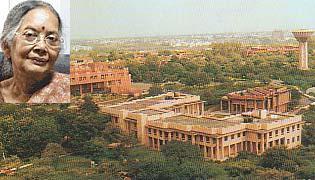

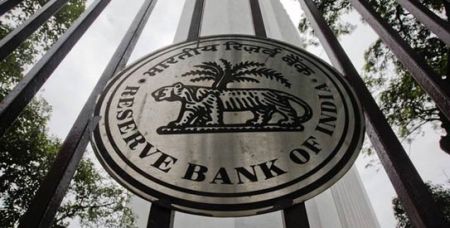
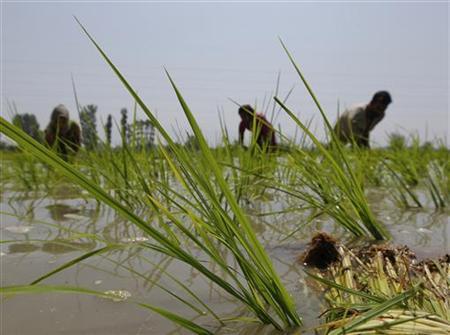

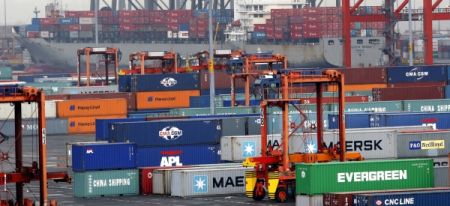
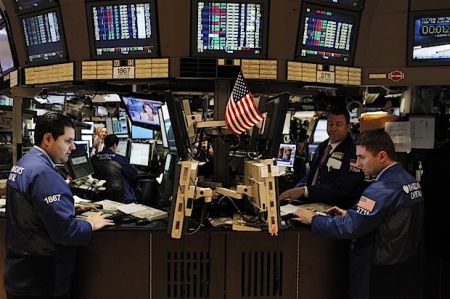
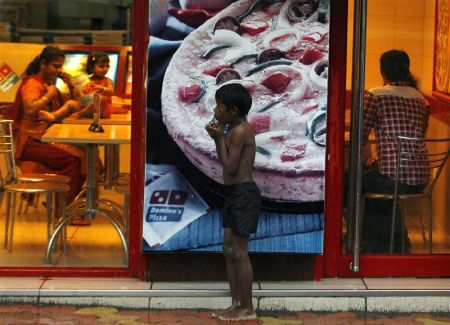
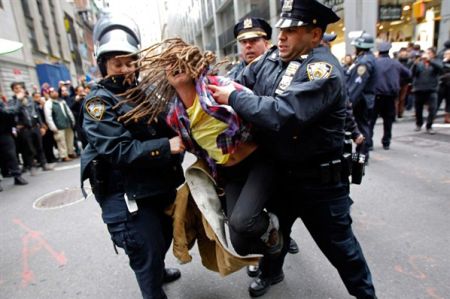
article